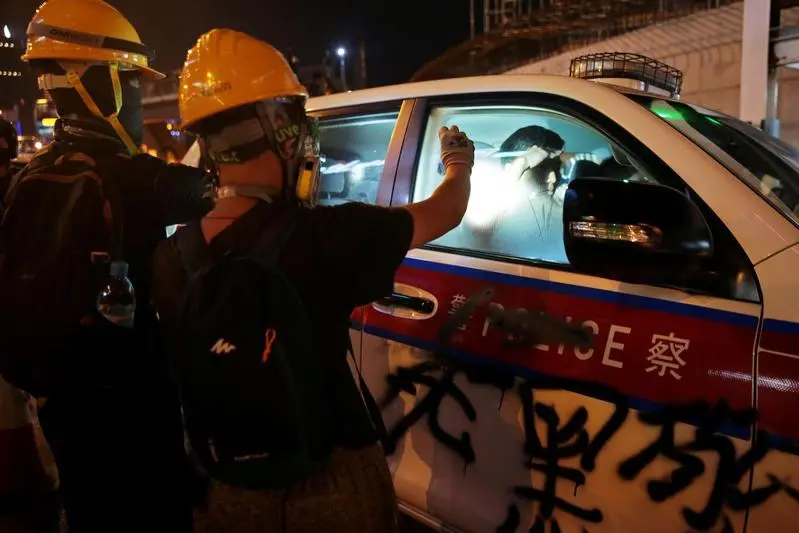PHOTO
HONG KONG - Blockades and walkouts roiled Hong Kong this week. Unlike similar unrest in 2014, investors are getting anxious. Trade tensions and economic weakness in China have helped to erase the Hang Seng Index’s gains this year, but local indicators like real estate and retail are cooling too. Beijing may not mind that protests squeeze business, if the rising cost of resistance divides the movement. That means there could be more disruption to price in.
A rare general strike on Monday halted traffic and shuttered shops across the territory, which has endured both peaceful marches and violent clashes for two months now. Police have retaliated with tear gas and rubber bullets, while pro-Beijing and anti-Beijing factions have assaulted each other on streets and in subway stations. Protesters want a controversial bill allowing extradition to China to be withdrawn, but have other demands too, including universal suffrage.
Despite the drama, the stock market was open. Hong Kong shareholders rarely flinch at political crises: they held steady when protesters occupied the financial hub’s central business district in 2014. But this time could be different.
Markets are frazzled. A depreciating yuan, a trade war, and slowing Chinese demand all hurt Hong Kong’s open economy. While the S&P 500 is up by double digits year-to-date, the Hang Seng Index is flat. Local firms that earn most of their revenue in the special administrative region are particularly hard hit. Property group Sino Land is down more than 10% for the period, and cosmetics seller Sa Sa has lost a third of its market capitalisation. Retailers from luxury group Richemont to high-street pharmacy Watsons reported flagging sales. Tourism numbers are growing more slowly than last year, and the volume of home purchases fell in June, according to Midland Property. Across the board, companies in the city’s benchmark are priced at around 13 times future earnings – peers in the S&P 500 are valued closer to 20 times.
So far staid bond and credit default swap markets have shown little reaction to the rapid decay of the city’s status quo. That might not last. Neither the territory’s nominal leader Carrie Lam nor her backers in the central government appear open to compromise. Escalation would further spook markets: unfortunately that seems more and more likely.
CONTEXT NEWS
- Hong Kong’s equities benchmark, the Hang Seng Index, has gained 0.6% year-to-date as of market close on Aug. 7. The S&P 500 gained 15% in the same period, while China’s CSI 300 rose 20.3%.
- Police fired tear gas at protesters in multiple parts of Hong Kong on Aug. 5 after a general strike hit transport and retail outlets.
- In an address on the same day, the city’s chief executive Carrie Lam said the territory’s prosperity was at risk, and warned of an “extremely dangerous situation”. She refused to meet any of the protesters’ demands.
(Editing by Pete Sweeney and Sharon Lam) ((katrina.hamlin@thomsonreuters.com; Reuters Messaging: katrina.hamlin.thomsonreuters.com@reuters.net))





















